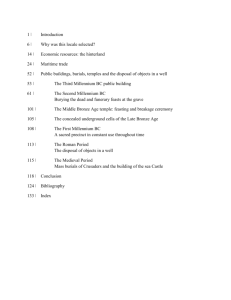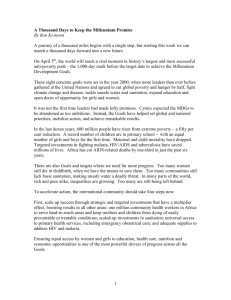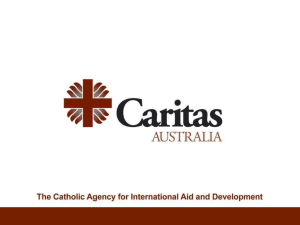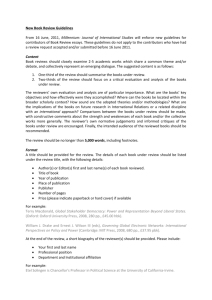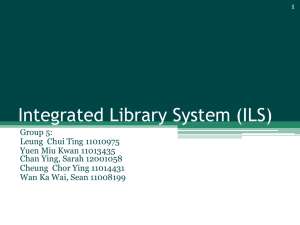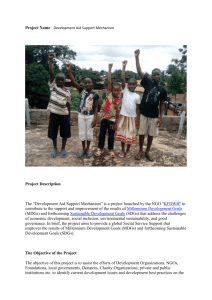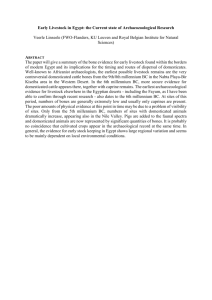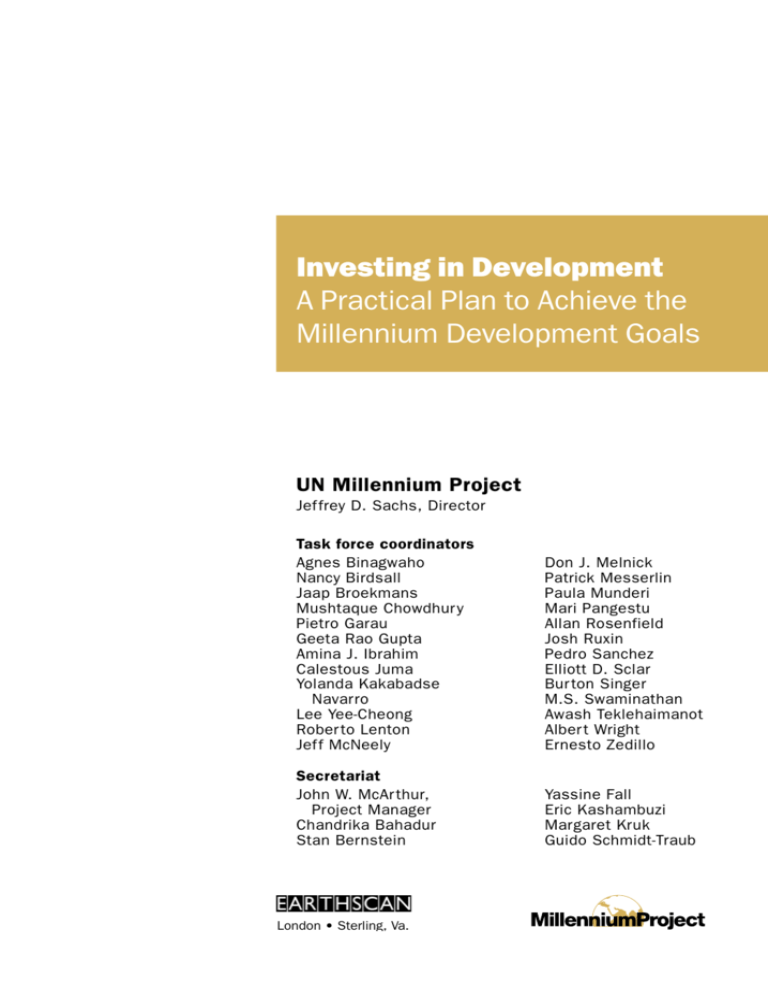
������������������������
�������������������������������
����������������������������
���������������������
��������������������������
�����������������������
���������������
���������������
��������������
������������������ �
������������
���������������
�����������������
��������������
������������������
����������
��������������
����� ���������
������������
��������������
�����������������
�������������
�������������
����������������
����������
�������������
����������������
��� ����������
����������������
�������������������
����� ��������
���������������
�����������
������������ ������
������������������
�����������������
��������������
������������
���������������
�������������
�������������������
����������������������
First published by Earthscan in the UK and USA in 2005
Copyright © 2005
by the United Nations Development Programme
All rights reserved
ISBN: 1-84407-217-7 paperback
For a full list of publications please contact:
Earthscan
8–12 Camden High Street
London, NW1 0JH, UK
Tel: +44 (0)20 7387 8558
Fax: +44 (0)20 7387 8998
Email: earthinfo@earthscan.co.uk
Web: www.earthscan.co.uk
22883 Quicksilver Drive, Sterling, VA 20166-2012, USA
Earthscan is an imprint of James and James (Science Publishers) Ltd and publishes in association with the International
Institute for Environment and Development
A catalogue record for this book is available from the British Library
Library of Congress Cataloging-in-Publication Data
A catalog record has been requested
This publication should be cited as: UN Millennium Project. 2005. Investing in Development: A Practical Plan to
Achieve the Millennium Development Goals. New York.
Photos: Front cover, top to bottom and left to right, Christopher Dowswell/UNDP, Pedro Cote/UNDP, Giacomo
Pirozzi/Panos Pictures, Liba Taylor/Panos Pictures, Jørgen Schytte/UNDP, UN Photo Library, Giacomo Pirozzi/
UNICEF, Curt Carnemark/World Bank, Pedro Cote/UNDP, Franck Charton/UNICEF, Paul Chesley/Getty
Images, Ray Witlin/World Bank, Pete Turner/Getty Images, B. Marquez/UNDP.
This book was edited, designed, and produced by Communications Development Inc., Washington, D.C., and its
UK design partner, Grundy & Northedge.
The UN Millennium Project was commissioned by the UN Secretary-General and supported by the UN Development Group, which is chaired by the Administrator of the United Nations Development Programme. The report is
an independent publication. This publication does not necessarily reflect the views of the United Nations, the United
Nations Development Programme, or their Member States.
For a listing of any errors or omissions in Investing in Development: A Practical Plan to Achieve the Millennium Development Goals found subsequent to printing, please visit http://www.unmillenniumproject.org.
Printed on elemental chlorine-free paper
Contents
Preface
x
Contributors
xii
Task force reports
xv
Abbreviations
xvi
Millennium Development Goals
Ten key recommendations
xx
Part 1
xviii
Why the MDGs are important, where we
stand, and why we’re falling short
1 The Millennium Development Goals and why they matter
What are the Millennium Development Goals?
1
Why the Goals are important
2
Structure of the report
9
2 Where we stand with only a decade to go
13
Evaluating poverty and progress around the world
13
How regions are progressing toward the MDGs
18
Summary of progress toward each Goal
23
3 Why the world is falling short of the Goals
Four reasons for shortfalls in achieving the Goals
Private and public investments to meet the MDGs
28
29
46
1
iv
Contents
Part 2
Country-level processes to achieve the Millennium
Development Goals
4 MDG–based poverty reduction strategies
55
Designing a national strategy to achieve the Goals
55
Working back from the 2015 targets and timelines
56
A transparent, integrated, and consultative process
61
5 Public investments to empower poor people
63
Rural development: increasing food output and rural incomes
65
Urban development: promoting jobs, upgrading slums, and developing
alternatives to new slum formation
72
Health systems: ensuring universal access to essential health services
77
Education: ensuring universal primary education and expanded postprimary
and higher education
84
Gender equality: investing to overcome pervasive gender bias
87
Environment: investing in improved resource management
90
Science, technology, and innovation: building national capacities
92
Interdependence of investment clusters
93
Implementing the recommendations: scale and sequencing
94
6 Key elements for rapid scale-up
95
Political leadership
96
Setting concrete objectives and sequencing work plans
97
Building national and local implementation capacity
99
Replicable and locally appropriate delivery mechanisms
106
Monitoring and feedback
107
Putting communities at the center of scaling up
108
Promoting scale-up through long-term funding commitments and technical
support
109
7 Governance to achieve the Millennium Development Goals
Strategies to enhance governance for the MDGs
113
Investments in public administration
114
Strengthening the rule of law
115
Promoting accountability and transparency
116
Promoting human rights
118
Promoting sound economic policies in support of the private sector
Partnering with civil society
124
8 Civil society’s contribution to the Millennium
Development Goals
126
Providing public advocacy for the Goals
128
Contributing to policy design
128
110
120
Contents
v
Scaling up service delivery
129
Monitoring for accountability
132
What international CSOs can do
132
9 Contributions of the private sector
137
Increasing productivity and creating jobs
137
Service delivery through public-private partnerships
Responsible corporate governance and citizenship
Contributing to policy design
143
Advocacy for the Goals
144
Corporate philanthropy
144
10 Africa’s special needs
146
Africa’s unique circumstances
148
MDG-focused investments for Africa
140
142
153
11 Investment priorities for reaching the Millennium
Development Goals in other regions
158
East Asia
159
South Asia
163
Central Asia
167
Latin America
169
Middle East and North Africa
173
Transition and CIS countries of Central and Eastern Europe
Special challenges
176
174
12 Strategies for countries affected by conflict
183
Investing in conflict prevention
184
Investing in countries in conflict
186
Investing in countries emerging from conflict
187
Part 3
Recommendations for the international system to support
country-level processes
13 Fixing the aid system
193
The 10 central problems with the aid system today
Key measures to improve aid delivery
199
193
14 A global breakthrough in trade
211
The context of trade negotiations
212
Key areas under negotiation
213
Promoting the export supply side in low-income countries
221
vi
Contents
15 Regional and global goods
Regional goods
223
Global goods
228
223
16
Getting started in 2005: launching a
decade of bold ambition
231
Identify fast-track countries
231
Prepare MDG-based poverty reduction strategies
232
Launch a global human resource training effort for
the Millennium Development Goals
235
Launch the Quick Wins initiatives
235
Engage the middle-income countries in the challenge of meeting the Goals 236
Part 4
The costs and benefits of achieving the Millennium
Development Goals
17
Resources required to finance the Millennium
Development Goals
239
MDG investment needs at the country level
241
Financing the MDG investments at the country level
245
Global ODA needs to meet the Goals
248
Financing mechanisms for increasing the ODA envelope
254
Immediate ODA needs for 2005
256
18 The benefits: the case for a decade of bold ambition
258
Dramatic—but only partial—poverty reduction around the world
258
The need for ongoing assistance beyond 2015
262
The danger of inaction
262
A decade of bold ambition
263
Appendix 1
Appendix 2
Appendix 3
Appendix 4
Millennium Development Goals interventions by
area
265
Millennium Development Goals
interventions by target
281
Assumptions underlying the resource
estimates in chapter 17
294
Methodology and data sources for projecting
progress toward the Goals in table 18.1
301
Notes
304
References
309
Acknowledgments
324
Contents
vii
Boxes
1.1
1.2
1.3
1.4
3.1
3.2
3.3
3.4
3.5
4.1
4.2
5.1
5.2
5.3
5.4
5.5
5.6
5.7
6.1
6.2
6.3
7.1
7.2
7.3
8.1
8.2
8.3
8.4
8.5
9.1
9.2
12.1
13.1
13.2
13.3
13.4
13.5
16.1
17.1
The Millennium Development Goals are country goals
3
The Monterrey Consensus as a framework for global partnership
5
The means to a productive life
8
Poverty reduction and global security
10
Essential inputs for reaching the Goals
30
The poverty-demography trap
38
Geographical obstacles and economic growth
40
The poverty-conflict nexus
42
Large-scale aid works—when done properly
51
Translating the Goals to the local level
58
How to know if the content of a poverty reduction strategy is up to the
task of meeting the Millennium Development Goals
60
Quick Wins—solutions to implement now
66
Increasing crop yields in Africa
69
Improving urban sanitation in India
74
Controlling malaria in Viet Nam
78
Sexual and reproductive health—essential for reaching the Goals
82
Getting every child into school in Tanzania
85
Empowering women in Rwanda
89
Transforming the lives of slum dwellers in Brazil
97
Health workers to control malaria in Ethiopia
103
Transferring infrastructure technology in Algeria
105
Assessing governance: many approaches
111
Actions to promote transparency
117
The power of information
119
CSOs and the Goals: critiques and opportunities
127
How CSOs help Thailand battle AIDS
131
SPARC—partnering with local government
131
The women’s movement and UN Conferences in the 1990s
134
Grameen Trust—spreading knowledge and self-reliance
135
The private sector’s role in development: the Monterrey Consensus 138
Scaling up public services through the private sector: rural
electrification in Chile
140
Responding to health needs in fragile settings
188
Selected pilot country experiences in operationalizing the Millennium
Development Goals
195
What advanced economies must do for the Goals
197
Governing for the Goals at the international financial institutions 202
Differentiating development support by country needs
204
MDG-based planning in Ethiopia
207
Identifying MDG fast-track countries
233
Key terms and concepts
240
viii
Contents
17.2 MDG needs assessment methodology
242
17.3 The 0.7 percent ODA target and the Millennium Development
Goals
252
17.4 Some caveats for the projections of official development assistance
needs
254
Figures
3.1
3.2
3.3
4.1
7.1
7.2
7.3
10.1
Capital accumulation, economic growth, and the MDGs
29
The classic poverty trap
36
Saving rates, by developing region
37
An MDG-based poverty reduction strategy
57
Foundations of the private sector and pillars of entrepreneurship
121
Time to start a business, by region
122
Time to start a business, by income
122
Relative transport costs in a typical Sub-Saharan country are much
higher than in Asia
149
17.1 Scaling up public investments in the Goals in Ghana
247
18.1 Under-five mortality
261
Maps
2.1
2.2
2.3
2.4
3.1
5.1
5.2
10.1
11.1
11.2
Absolute poverty: infant mortality and malnutrition, 2000
17
Child mortality rate, 2002
24
Maternal mortality ratio, 2000
25
Share of urban population living in slums
27
Human vulnerability index, 1980
44
Physicians per 1,000 people
80
Antiretroviral drug coverage
81
Global map of malaria stability index
151
Per capita incomes in provinces of mainland China
160
Literacy rates for girls, though increasing, are much lower than for
boys
164
11.3 High infant mortality rates point to pockets of extreme poverty
170
11.4 Areas at highest natural disaster–related mortality risk
180
17.1 MDG financing gap, 2015
249
Tables
2.1
2.2
2.3
2.4
3.1
Measures of average progress in the developing world,
1990–2002
14
Major trends in the Goals, by region
15
Population living below the poverty line, by developing region
16
Tracking developing world progress by region since 1990
18
Economic growth predicted from domestic saving, population growth,
and capital depreciation
37
Contents
ix
3.2 Agriculture risk, transport risk, and malaria risk, by region
44
3.3 Concentration of non-oil FDI among developing countries, 2002
47
10.1 Governance in tropical Sub-Saharan Africa is no worse than elsewhere,
after controlling for income
147
10.2 Comparative indicators across developing regions around 1965
152
10.3 Agricultural technology and productivity, by developing region
153
11.1 Mortality risks due to natural hazards, by region
171
13.1 Tying of donor assistance, 2002
198
13.2 Estimated official development assistance for direct MDG support and
MDG capacity building, 2002
199
13.3 Recommendations for reforming development partnership
200
14.1 Economic growth rates by population size and location
222
17.1 Per capita MDG investment needs and MDG financing gaps in Bangladesh, Cambodia, Ghana, Tanzania, and Uganda, 2006–15
244
17.2 Cofinancing the MDGs in low-income countries
249
17.3 Estimated cost of meeting the Millennium Development Goals in all
countries
251
17.4 Plausible ODA needs to meet the Millennium Development
Goals
251
17.5 Estimated ODA flows and gaps of Development Assistance Committee
members based on existing commitments
255
18.1 The benefits of meeting the Millennium Development Goals, by
developing region
259
A3.1 Annual per capita GDP growth assumptions for 2006–15, by
region
295
A3.2 Estimated government resource mobilization
296
A3.3 Breakdown of funding for global research
298
Preface
The UN Millennium Project has been a unique undertaking. Its 10 task forces,
Secretariat, and broad array of participants from academia, government, UN
agencies, international financial institutions, nongovernmental organizations,
donor agencies, and the private sector created a worldwide network of development practitioners and experts across an enormous range of countries, disciplines, and organizations. The Project was made possible by the unique commitment, skills, and convictions of the task force coordinators, who led their
groups to take on some of the most challenging development questions of our
generation, and by the task force members, who gave remarkably of their time.
This has been a global effort, in the service of a great global cause—the Millennium Development Goals (MDGs). Our Project has been a microcosm of
a larger truth: achieving the Millennium Development Goals will require a
global partnership suitable for an interconnected world. The world truly shares
a common fate.
This has been a labor of love for the many participants in the task forces
and Secretariat. Individuals have volunteered vast amounts of effort and expertise to the Project. Their contributions, far beyond any reasonable expectation,
have immeasurably sharpened and strengthened the messages contained in
the Project’s many outputs, including this report, the task force final reports,
the newly developed tools for needs assessment, and the advisory support for
MDG-based planning in several countries.
I believe that all of the participants have contributed in such a manner
because they recognize the special nature of this effort. Part of that is the honor
and privilege of working on behalf of UN Secretary-General Kofi Annan, who
launched the UN Millennium Project and who has played an unparalleled role
in promoting the global fight against extreme poverty. Part is the delight of
working for and together with UNDP Administrator Mark Malloch Brown,
Preface
xi
whose tenacity, vision, and leadership have guided the UN Development
Group’s efforts for several years. We have also enjoyed, admired, and richly benefited from the leaders of other UN agencies, who direct teams that save lives
and ease burdens of poverty and despair throughout the world on a daily basis.
Another special aspect of the Project is the rare and powerful opportunity to help give voice to the hopes, aspirations, and vital needs of the world’s
poorest and most voiceless people. We have met countless heroes and heroines
of development in the three years of our work—in the villages and slums of
Africa, Asia, Latin America, and other parts of the developing world. We have
seen people preserving their spirit, integrity, commitment, and hope for the
future even when they have little else, when tragic circumstances have left
them bereft of health, education, possessions, and a means of livelihood. The
human spirit, we have seen on innumerable occasions, is truly indomitable.
This triumph of the human spirit gives us the hope and confidence that
extreme poverty can be cut by half by the year 2015, and indeed ended altogether within the coming years. The world community has at its disposal the
proven technologies, policies, financial resources, and most importantly, the
human courage and compassion to make it happen.
Jeffrey D. Sachs
January 2005
Contributors
This document presents the findings and recommendations of the UN Millennium Project, an independent advisory body to UN Secretary-General Kofi
Annan. We are grateful to the Secretary-General for initiating and supporting
the UN Millennium Project, for his unswerving commitment to the objective
of global poverty reduction, and for his remarkable and tireless leadership of
the United Nations system. We also thank Mark Malloch Brown, Administrator of the United Nations Development Programme (UNDP) and Chair of
the United Nations Development Group, for his sage guidance and support at
every step of the project. We also wish to express our profound appreciation
to members of the UN Development Group’s Executive Committee for their
ongoing support: Carol Bellamy, United Nations Children’s Fund; Jim Morris, World Food Programme; and Thoraya Obaid, United Nations Population
Fund. We are further grateful to Louise Fréchette, Deputy Secretary-General,
José Antonio Ocampo, Department of Social and Economic Affairs; his predecessor Nitin Desai; and Shashi Tharoor, Department of Public Information,
for their generous guidance and advice.
This report has been co-authored by the coordinators of the UN Millennium Project’s 10 task forces and Secretariat, building on the contributions
made by hundreds of scholars, development practitioners, scientists, political
leaders, and policy leaders involved since the Project’s inception in July 2002. A
large number of task force associates and task force members made tremendous
contributions to many parts of this report, including Gabriella Carolini, Glenn
Denning, Helen de Pinho, Philip Dobie, Lisa Dreier, Lynn Freedman, Caren
Grown, Ruth Levine, Kristen Lewis, Joan Paluzzi, Robin Sears, Smita Srinivas,
Yesim Tozan, Ron Waldman, Haynie Wheeler, Paul Wilson, and Nalan Yuksel. In the UN Millennium Project Secretariat, Albert Hyunbae Cho, Michael
Faye, Michael Krouse, Fatou Lo, Gordon McCord, Luis Javier Montero, Rohit
Contributors
xiii
Wanchoo, Emily White, and Alice Wiemers worked around the clock for
many months to provide invaluable research assistance. Erin Trowbridge provided extremely important comments and inputs. Prarthna Dayal, Rafael Flor,
Maria Beatriz Orlando, Nora Simpson, Kelly Tobin, and Brian Torpy also
made essential efforts in further supporting task force contributions.
This report also directly integrates many of the ideas developed by the
UN Millennium Project’s Task Force on Poverty and Economic Development, including many outlined by its interim report of February 2004. The
members and associates of the Task Force on Poverty and Economic Development who contributed include Kwesi Botchwey, Haidari Amani, Ernest
Aryeetey, George Cahuzac, Andrew Cassels, Jamie Drummond, Richard
Freeman, Rebecca Grynspan, Pekka Haavisto, Aynul Hasan, Peter Heller,
Macartan Humphreys, John Langmore, Ruth Jacoby, Carlos Jarque, Allan
Jury, Eddy Lee, Zhu Ling, Thomas Merrick, Vijay Modi, John Okidi, Hafiz
Pasha, Michael Platzer, Steven Radelet, Atiqur Rahman, Frederic Richard,
Ana-Teresa Romero, Rabbi Royan, Ratna Sahay, Francisco Sercovich, Sudhir
Shetty, David Simon, Suresh Tendulkar, Michael Usnick, Ashutosh Varshney, and Xianbin Yao. Several of them wrote crucial background papers that
formed the basis for important sections of the text. These include Philip
Alston (human rights), Macartan Humphreys and Ashutosh Varshney (conflict), Vijay Modi (rural infrastructure), David Simon (aid flows), and Steven Radelet (governance and official development assistance). The Economic
Commission for Africa (together with UNDP Ethiopia) and the Economic
and Social Commission for Asia and the Pacific (in collaboration with UNDP
Thailand) hosted the task force meetings where many of the ideas in this
report were developed.
UNDP offered a gracious home to the UN Millennium Project in addition
to providing instrumental financial, in-kind, and intellectual contributions on
behalf of the UN Development Group. For this we thank all members of the
senior management team including Abdoulie Janneh, Rima Khala Hunaidi,
Elena Martinez, Jan Mattson, Kalman Mizsei, Shoji Nishimoto, Hafiz Pasha,
Julia Taft, and their respective bureau teams. Under the leadership of Bruce
Jenks, the Bureau for Resources and Strategic Partnerships provided tireless
support to the project, particularly from Turhan Saleh, Amina Tirana, and
the rest of the MDGs Unit. Mark Suzman in the Office of the Administrator
provided daily doses of patient and thoughtful advice.
The Millennium Trust Fund at UNDP was supported by several governments and foundations and provided the core financial support for the Project
since its inception in 2002. The Project is also deeply grateful for the contributions from the Ford Foundation, the Bill and Melinda Gates Foundation,
the William and Flora Hewlett Foundation, the John D. and Catherine T.
MacArthur Foundation, the David and Lucile Packard Foundation, the Open
Society Institute, and the Rockefeller Foundation.
xiv
Contributors
The UN Millennium Project would like to give special thanks to the Earth
Institute at Columbia University for its intellectual, administrative, financial,
and in-kind support to the Project Secretariat and to many of the task forces.
The project also thanks the Center for Global Development, the John F. Kennedy School of Government at Harvard University, Partners in Health, the
International Centre for Research on Women, the Mailman School of Public
Health at Columbia University, and the Yale Center for the Study of Globalization for their crucial role in supporting the activities of the Project’s task
forces.
The UN Millennium Project is indebted to the staff of the United Nations
system and to members of governments, civil society, and the private sector, too
numerous to mention by name, who have contributed directly or indirectly to
the report. All errors and omissions remain the responsibility of the authors.
xv
Task force reports
Task Force on Hunger
Halving hunger: it can be done
Task Force on Education and Gender Equality
Toward universal primary education: investments, incentives, and institutions
Task Force on Education and Gender Equality
Taking action: achieving gender equality and empowering women
Task Force on Child Health and Maternal Health
Who’s got the power? Transforming health systems for women and children
Task Force on HIV/AIDS, Malaria, TB, and Access to Essential Medicines,
Working Group on HIV/AIDS
Combating AIDS in the developing world
Task Force on HIV/AIDS, Malaria, TB, and Access to Essential Medicines,
Working Group on Malaria
Coming to grips with malaria in the new millennium
Task Force on HIV/AIDS, Malaria, TB, and Access to Essential Medicines,
Working Group on TB
Investing in strategies to reverse the global incidence of TB
Task Force on HIV/AIDS, Malaria, TB, and Access to Essential Medicines,
Working Group on Access to Essential Medicines
Prescription for healthy development: increasing access to medicines
Task Force on Environmental Sustainability
Environment and human well-being: a practical strategy
Task Force on Water and Sanitation
Health, dignity, and development: what will it take?
Task Force on Improving the Lives of Slum Dwellers
A home in the city
Task Force on Trade
Trade for development
Task Force on Science, Technology, and Innovation
Innovation: applying knowledge in development
Abbreviations
APRM
ASEAN
CARICOM
CGIAR
CIS
COMESA
CSO
DAC
DFID
DOTS
ECOWAS
EIA
EITI
ERS
EU
FAO
FDI
FTA
GATS
GATT
GAVI
GDP
GEMS
GNI
GNP
HIPC
ICT
IDA
IFAD
African Peer Review Mechanism
Association of Southeast Asian Nations
Caribbean Community
Consultative Group on International Agricultural Research
Commonwealth of Independent States
Common Market for Eastern and Southern Africa
civil society organization
Development Assistance Committee
Department for International Development (UK)
directly observed treatment, short course
Economic Community of West African States
Energy Information Administration
Extractive Industries Transparency Initiative
Economic Recovery Strategy for Wealth and Employment
Creation
European Union
Food and Agriculture Organization
foreign direct investment
free trade agreement
General Agreement on Trade in Services
General Agreement on Tariffs and Trade
Global Alliance for Vaccines and Immunization
gross domestic product
Global Environment Monitoring System
gross national income
gross national product
heavily indebted poor country
information and communication technologies
International Development Association
International Fund for Agricultural Development
Abbreviations
IFF
ILO
IMF
IMR
IPCC
LDC
MCA
MCC
MDG
MFN
MTEF
NEPAD
NGO
OECD
ODA
ODS
PRS
PRSP
R&D
RAE
SADC
SDI
SDT
SPARC
SWAps
TRIPS
xvii
International Financing Facility
International Labour Organization
International Monetary Fund
infant mortality rate
Intergovernmental Panel on Climate Change
Least Developed Country
Millennium Challenge Account
Millennium Challenge Corporation
Millennium Development Goal
most-favored nation
medium-term expenditure framework
New Partnership for Africa’s Development
nongovernmental organization
Organisation for Economic Co-operation and Development
official development assistance
overall trade-distorting domestic support
poverty reduction strategy
Poverty Reduction Strategy Paper
research and development
Rehabilitation of Arid Environments Charitable Trust (Kenya)
Southern African Development Community
Slum/Shack Dwellers International
special and differential treatment
Society for Promotion of Area Resource Centers (India)
sectorwide approaches
Agreement on Trade-Related Aspects of Intellectual Property
Rights
UNAIDS
Joint United Nations Programme on HIV/AIDS
UNCTAD United Nations Conference on Trade and Development
UNDAF
UN Development Assistance Framework
UNDP
United Nations Development Programme
UNDESA United Nations Department of Economic and Social Affairs
UNECA
United Nations Economic Commission for Africa
UNEP
United Nations Environment Programme
UNESCAP United Nations Economic and Social Commission for Asia and
the Pacific
UNESCO United Nations Educational, Scientific and Cultural Organization
UNFPA
United Nations Population Fund
UNICEF
United Nations Children’s Fund
UNIFEM United Nations Development Fund for Women
UNIDO
United Nations Industrial Development Organisation
USAID
U.S. Agency for International Development
WBCSD
World Business Council for Sustainable Development
WIPO
World Intellectual Property Organization
WTO
World Trade Organization
xviii
Millennium Development Goals
����������������������������
������
����������
����������������
����������
������
��������
������������������
���������
������
���������������
�������������
�������������
������
�������������
���������
������
���������
�����������������������������������������������������������������������
������������������
���������
�����������������������������������������������������������������������������
���������
��������������������������������������������������������������������������������������������
��������������������������������
���������
������������������������������������������������������������������������������������������
������������������������������������������
���������
��������������������������������������������������������������������������
�
���������
�����������������������������������������������������������������������������
���������
���������������
������
��������
����������
�������������
��������������
���������
���������������������������������������������������������������
���������
������������������������������������������������������������������������������������������
�
Millennium Development Goals
������
�������
��������������
��������������
xix
���������
���������� ���� ����������� ��� ������������ ������������ ����� �������� ��������� ���� ���������
������������������������������������������������
����������
������� ��� ������ ���� ����������� ��� ������� �������� ������������ ������� ��� ����� ���������
���������������������������
����������
����� ��������� ��� ����� �� ������������ ������������ ��� ���� ������ ��� ��� ������ ���� ��������
�������������
������
�����������������
����������������
�����������
����������
�������� ��� ����� ��� ������ ������������ ������������� ���������������� �� �������� ����
�������������������������������������������������������������������������������������
����������������������������������������������
����������
��������������������������������������������������������������������������������������������
�������������������������������������������������������������������������������������������
��������� ����� ���������� �������� ���� ������������� ��� ��������� ���������� ������ ���� �����
��������������������������������������������������������������������������������������
����������
�����������������������������������������������������������������������������������������
������� ��������� ���� �������� ��� ������� ���� ���� ������������ ������������ ��� ������ �������
�������������������������������������������������������
����������
����� ���������������� ����� ���� ����� ��������� ��� ����������� ���������� �������� ���������
�����������������������������������������������������������������������������
�������������������������������������������������������������������������������������������
��������������������������������������������������������������������
����������
��� ������������ ����� ����������� ����������� �������� ���� ���������� ����������� ���� �������
������������������������������
����������
��� ������������ ����� ��������������� ����������� �������� ������� ��� ����������� ����������
�����������������������������
����������
��� ������������ ����� ���� �������� �������� ����� ���������� ���� ��������� ��� ���� ��������������
������������������������������������������������������
xx
�����������������������
����������������
����������������������������������������������������������������������������������
��������������������������������������������������������������������������
��������������������������������������������������������������������������������
�����������������������������������������������������������������������������������
�����������������������������������������������������������������������������
����������������
����������������������������������������������������������������������������������
�����������������������������������������������������������������������������
�������������������������������������������������������������������������������
��������������������������������������������������������������������������������������
����������������������������������������������������������
�� �����������������������������������������������������������������������������������
�����
��� ����������������������������������������������������������������������������������������
��������������
��� �������������������������������������������������������������������������������������������
��������������������������������������������������������������������������������������
��� ���������������������������������������������������������������������������������
���������������������������������������������������������������������������������������
����������������������
��� ����������������������������������������������������������������
��� ��������������������������������������������������������������������������������������������
��� ����������������������������������������������������������������������������������������
����������������������������������������
��� ���������������������������������������������������������������������������������������
�������
��� ������������������������������������������������������������������������������
������������������������������������������������
��� ��������������������������������������������������������������������������������
�����
��� ��������������������������������������������������������
��� ��������������������������������������������������������������������������������
����������
�������������������������������������������������������������������������������������
�������������������������������������������������������������������������������������������
�������������
Ten key recommendations
����������������
xxi
��������������������������������������������������������������������������������
����������������������������������������������������������������������������������������
��������������������������������������������������������������������������������
�� �����������������������������������������������������������������������������������������
����������������������������������
�� ������������������������������������������������������������������������������������
�����������������������������������������������������������������������������
����������������
���������������������������������������������������������������������������������������
���������������������������������������������������������������������������������������
��������������������������������������������������������������������������������������
������������������������������������
����������������
������������������������������������������������������������������������������������
����������������������������������������������������������������������������������
������������������������������������������������������������������������������������
�����������������������������������������������
�� ���������������������������������������������������������������������������������������
���������������������������������������������������������������
�� �����������������������������������������������������������������������������������
�����������������������������������������������������������������
�� ���������������������������������������������������������������������������������
����������������������������������������������������������������������
�� ����������������������������������������������������������������������������������
��������������������������������������������������������
�� ��������������������������������������������������������������������������������
�����������������������������������������������������������������������������������������
���������������������������������������������������
������������������������������������������������������������������������������
���������������������������������������
�� �����������������������������������������������������������������������������������������
�����������������������������������������
�� ���������������������������������������
�� ������������������������������������������������������������������
����������������
�����������������������������������������������������������������������������������
������������������������������������������������������������������������������
�����������������������������������������������������������������������������������
������������������������������������������������������������������������
�� ����������������������������������������������������������������������������������������
�������������������������������������������������
�� ����������������������������������������������������������������
�� ��������������������������������������������������������������������������������
������������������������������
xxii
����������������
Ten key recommendations
���������������������������������������������������������������������������������
�������������������������������������������������������������������������������������
�����������������������������������������������������������������������������
�����������������������������������������������������������������������������������������
���������������������������������������������������������������������������������
���������������������������������������������������������������������������������
���������������������������������������������������������������
�� ���������������������������������������������������������������������������������
���������������������������������������������������
�� �����������������������������������������������������������������������������������������
����������������������������������
�� �����������������������������������������������������������������������������������
���������������������������������������
�� ���������������������������������������������������������������������������������
�������������������������������������
�� ����������������������������������������������������������������������������������
���������������������������������������������������
����������������
��������������������������������������������������������������������������������������
�������������������������������������������������������������������������������������
��������������������������������������������������������������������������������������������
������������������������������������������������������������������������������
�����������������������������
����������������
��������������������������������������������������������������������������������
����������������������������������������������������������������������������������
������������������������������������������������������������������������������������
����������������������������������������������������������������
�����������������
����������������������������������������������������������������������������
�������������������������������������������������������������������������
��������������������������������������������������������������������������������
����������������������������������������������������������������������������������������
�� ��������������������������������������������������������������������������������
���������������������������������������
�� ������������������������������������������������������������������������������
��������������������������������������������������������������������������������
���������������������������������������������������������

